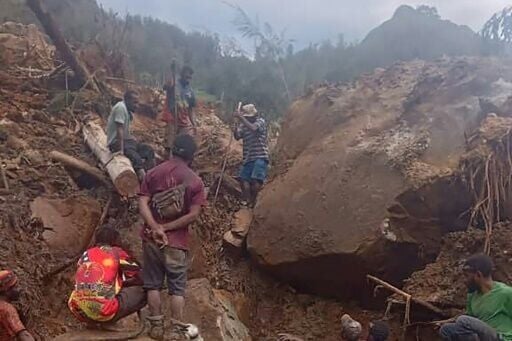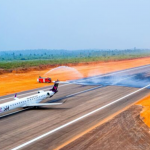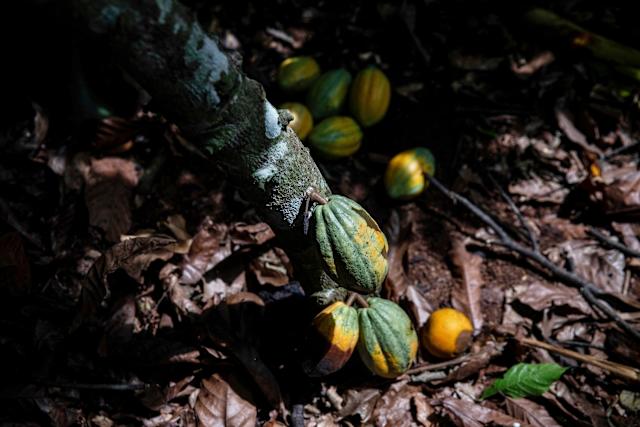
Papua New Guinea: More Landslide Survivors Unlikely, UN Warns of Disease Risks

Papua New Guinea has announced that finding more survivors from last week’s landslide is unlikely, as a UN agency warns of a risk of disease outbreaks among displaced residents who still lack sufficient food and clean water.
Six days after a mountainside community in Enga province was buried under a massive slide of soil, rocks, and debris, the United Nations’ International Organization for Migration (IOM) reported that the area’s water sources have become contaminated, heightening disease risk. The landslide site, now a 600-meter-long graveyard, has compromised much of the region’s water supply.
The creeks now flowing from the debris are contaminated, posing a significant risk of disease outbreak,” the UN’s migration agency told partners in a rapid assessment report.
No methods are being used to treat the water to make it safe for drinking, it said, warning of diarrhoea and malaria.
Throughout the past week, villagers affected by the landslide have been digging through tons of earth in a desperate search for their buried loved ones. Witnesses have reported an overpowering odour of decaying bodies.
Enga province disaster committee chairman Sandis Tsaka told Reuters that no survivors are expected to be found under the debris at this stage and that it has become a recovery operation to retrieve human remains.
Officials and rescuers have so far recovered 11 bodies, and at least two people were rescued three days after the disaster.
Government estimates suggest that more than 2,000 people may have been buried alive, while the UN estimates the death toll at around 670. A local businessman and former official, however, suggested the number is closer to 160.
About The Author
Related Articles
Tinubu Deducts N100bn Monthly From Federation Account Without Approval El-Rufai Alleges Says Action Deserves Impeachment
Former Kaduna State Governor Nasir El-Rufai has launched a blistering attack on...
ByWest Africa WeeklyJanuary 26, 2026After Taiwo Oyedele’s Denials, Lagos State Activates ‘Power of Substitution’ Under Tinubu-Altered Tax Law, Allowing Authorities to Redirect Payments Without Court Orders
Lagos State has moved to activate a controversial enforcement provision in the...
ByWest Africa WeeklyJanuary 26, 2026Ivory Coast to Buy Unsold Cocoa to Support Farmers
Ivory Coast has announced a government plan to purchase unsold cocoa stock...
ByWest Africa WeeklyJanuary 23, 2026Ghana Moves to Reclaim Kwame Nkrumah’s Former Residence in Guinea
Ghana has embarked on a diplomatic and cultural initiative to reclaim the...
ByWest Africa WeeklyJanuary 23, 2026











